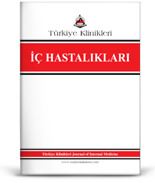Şiddetli hipertansiyon, gebelik ve doğum sonu dönemde anne sağlığını ciddi şekilde etkileyebilecek önemli bir sağlık sorunudur. Gebelikte hipertansiyon; gebelik dönemi kronik hipertansiyonu, gebeliğe bağlı (gestasyonel) hipertansiyon, kronik hipertansiyona bağlı preeklampsi/eklampsi ve gebeliğin tetiklediği hipertansiyon (preeklampsi/eklampsi) olarak sınıflandırılır. Doğum sonu dönemi hipertansiyonu ise kronik hipertansiyon geçmişi, gebelik hipertansiyonu, preeklampsi ve eklampsi olarak sınıflandırılır. Doğum sonu dönemdeki hipertansiyonun en yaygın nedeni, genellikle gebelikte seyreden yüksek kan basıncının doğumdan sonra da aynı yükseklikte devam etmesidir. Preeklampsi belirtileri çoğunlukla nonspesifik olduğundan, gebelikte veya doğum sırasında fark edilmeyebilir. Belirtilerin geç fark edilmesi ya da bilinmemesi tedaviyi geciktirir. Sağlık personelinin, gebeleri preeklampsi bulgu ve belirtileri hakkında bilgilendirmesi ve eğer belirtiler mevcut ise sağlık hizmeti veren kurumlarla temasa geçmesinin aciliyetini vurgulaması gerekir. Şiddetli hipertansiyonda (kan basıncı ≥160/100 mmHg) serebrovasküler risklerin artması nedeni ile antihipertansif ajanların uygulanması gerekirken, hafif ve orta şiddetli hipertansiyonda bu ajanların kullanımı hâlâ tartışmalıdır. Dünya Sağlık Örgütü; hipertansiyon, preeklampsi ve eklampsi tedavisine yönelik çeşitli önerilerde bulunmuştur. Sağlık kurumları, çok geniş bir neden ve etki yelpazesine sahip hipertansiyonun yönetimi için buna uygun talimatlar oluşturmalı ve bu talimatlar yayınlara dayalı olarak güncellenmelidir. Bu çalışmada, güncel yayın ve rehberler incelenerek gebelik ve doğum sonu dönemde gelişen şiddetli hipertansiyona ilişkin yeni uygulama ve yaklaşımlar konusunda sağlık hizmeti veren tarafları bilgilendirmeyi amaçlamaktadır.
Anahtar Kelimeler: Hipertansiyon; gestasyonel hipertansiyon; preeklampsi; eklampsi; postpartum dönem
Severe hypertension is an important health problem that can seriously affect maternal health during pregnancy and postpartum period. Hypertension during pregnancy is classified as chronic hypertension, gestational hypertension, preeclampsia/eclampsia due to chronic hypertension and hypertension (preeclampsia/eclampsia) triggered by pregnancy. Postpartum period hypertension is classified as history of chronic hypertension, pregnancy hypertension, preeclampsia and eclampsia. The most common cause of postpartum hypertension is the fact that high blood pressure during pregnancy usually continues to stay heigh after birth. Since the symptoms of preeclampsia are mostly nonspecific, they may not be noticed during pregnancy or delivery. Late detection or unknown symptoms may delay treatment. Health personnel should emphasize the urgency of informing pregnant women about the signs and symptoms of preeclampsia and contacting health care providers if symptoms are present. In severe hypertension (blood pressure ≥160/100 mmHg), antihypertensive agents should be administered because of increased cerebrovascular risks, while the use of these agents in mild to moderate hypertension is still controversial. The World Health Organization has made various recommendations for the treatment of hypertension, preeclampsia and eclampsia. Health institutions should establish appropriate instructions for the management of hypertension with a wide range of causes and effects, and these instructions should be updated on the basis of publications. This study aims to inform health service providers about new applications and approaches related to severe hypertension in pregnancy and postpartum period by examining current publications.
Keywords: Hypertension; gestational hypertension; preeclampsia; eclampsia; postpartum period
- Sharma KJ, Kilpatrick SJ. Postpartum hypertension: etiology, diagnosis, and management. Obstet Gynecol Surv. 2017;72(4): 248-52. [Crossref] [PubMed]
- Bernstein PS, Martin JN Jr, Barton JR, Shields LE, Druzin ML, Scavone BM, et al. Consensus bundle on severe hypertension during pregnancy and the postpartum period. J Midwifery Womens Health. 2017;62(4):493-501. [Crossref] [PubMed]
- Api O, Api M. [Pregnancy and hypertension]. Turkiye Klinikleri J Endocrin-Special Topics. 2013;6(3):79-91.
- Leeman L, Dresang LT, Fontaine P. Hypertensive disorders of pregnancy. Am Fam Physician. 2016;93(2):121-7.
- Uzan J, Carbonnel M, Piconne O, Asmar R, Ayoubi JM. Pre-eclampsia: pathophysiology, diagnosis, and management. Vasc Health Risk Manag. 2011;7:467-74. [Crossref] [PubMed] [PMC]
- Townsend R, O'Brien P, Khalil A. Current best practice in the management of hypertensive disorders in pregnancy. Integr Blood Press Control. 2016;9:79-94. [Crossref] [PubMed] [PMC]
- Ananth CV, Basso O. Impact of pregnancy-induced hypertension on stillbirth and neonatal mortality. Epidemiology. 2010;21(1):118- 23. [Crossref] [PubMed] [PMC]
- Ross HS, Cnattingius S, Lipworth L. Comparison of risk factors for preeclampsia and gestational hypertension in a population-based cohort study. Am J Epidemiol. 1998;147(11): 1062-70. [Crossref] [PubMed]
- Culha G, Ocaktan ME, Col M. [Hypertension study in pregnant women demanding services of Ankara University School of Medicine Obstetrics and Gynecology Department Outpatient Clinic]. Turkiye Klinikleri J Med Sci. 2010;30(2):639-49. [Crossref]
- Bramham K, Nelson-Piercy C, Brown MJ, Chappell LC. Postpartum management of hypertension. BMJ. 2013;346:f894. [Crossref] [PubMed]
- Sibai BM. Etiology and management of postpartum hypertension-preeclampsia. Am J Obstet Gynecol. 2012;206(6):470-5. [Crossref] [PubMed]
- World Health Organization (WHO). WHO Recommendations for Prevention and Treatment of Pre-Eclampsia and Eclampsia. WHO Library Cataloguing-in-Publication Data. Geneva: WHO Press; 2011. p.38.
- Regitz-Zagrosek V, Roos-Hesselink JW, Bauersachs J, Blomstrom-Lundqvist C, Cifkova R, De Bonis M, et al. ESC guidelines for the management of cardiovascular diseases during pregnancy. Eur Heart J. 2018;39(34):3165-241.
- Mudjari NS, Samsu N. Management of hypertension in pregnancy. Acta Med Indones. 2015;47(1):78-86.
- Brown CM, Garovic VD. Drug treatment of hypertension in pregnancy. Drugs. 2014,74(3): 283-96. [Crossref] [PubMed] [PMC]
- Montan S. Drugs used in hypertensive diseases in pregnancy. Curr Opin Obstet Gynecol. 2004;16(2):111-5. [Crossref] [PubMed]
- Abalos E, Duley L, Steyn DW, Henderson-Smart DJ. Antihypertensive drugs therapy for mild to moderate hypertension during pregnancy. Cochrane Database Syst Rev. 2007;24(1):CD002252. [Crossref]
- NICE Clinical Guideline. Hypertension in Pregnancy: the Management of Hypertensive Disorders During Pregnancy. London: RCOG Press; 2010. p.284.
- ACOG. Hypertension in Pregnancy (Report of the ACOG Task Force on Hypertension in Pregnancy). Obstetrics & Gynecology. 2013;122(5).
- Podymow T, August P. New evidence in the management of chronic hypertension in pregnancy. Semin Nephrol. 2017;37(4):398-403. [Crossref] [PubMed]
- August P (author), Lockwood J, Bakris G (section editors), Barss VA (Deputy editor). Management of hypertension in pregnant and postpartum women. UpToDate 2015. https://www.uptodate.com/contents/management-of-hypertension-in-pregnant-and-postpartum-women.







.: Process List